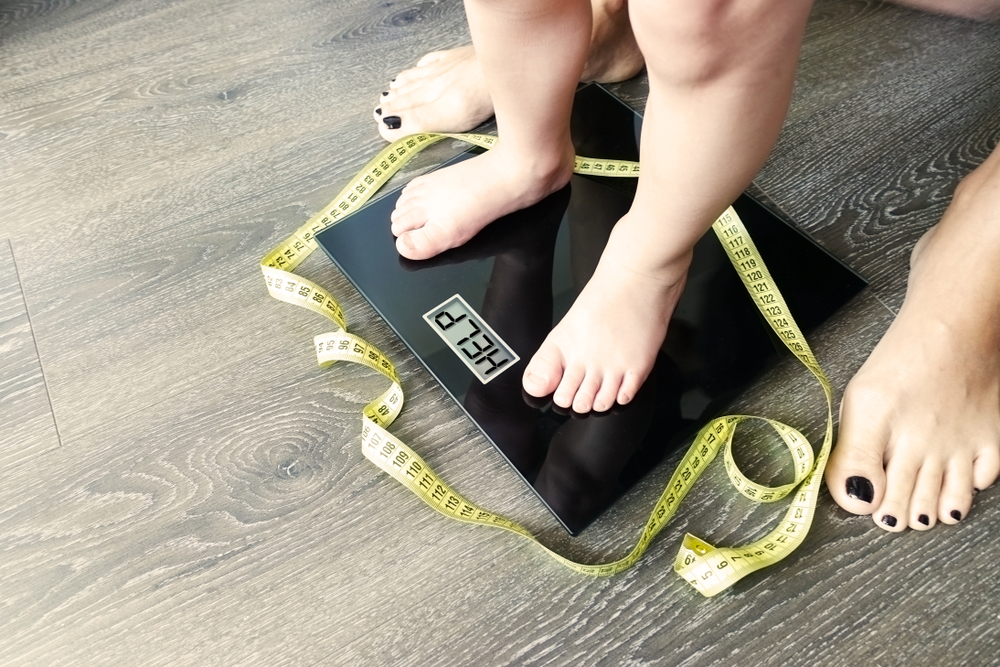Geometry Worksheets Activities With Answers for Ages 6-9
6 filtered results
-
From - To
Welcome to our engaging collection of geometry worksheets and activities designed for children aged 6-9! These resources are perfect for young learners to explore basic geometric concepts, including shapes, angles, and spatial understanding. Each worksheet is crafted to make learning fun and interactive, featuring colorful illustrations and relatable examples. With provided answer keys, parents and teachers can easily assess progress and comprehension. Our geometry worksheets encourage critical thinking and problem-solving skills while fostering a love for mathematics. Dive into our activities today and help your child build a strong foundation in geometry! Ideal for both classroom use and homework.
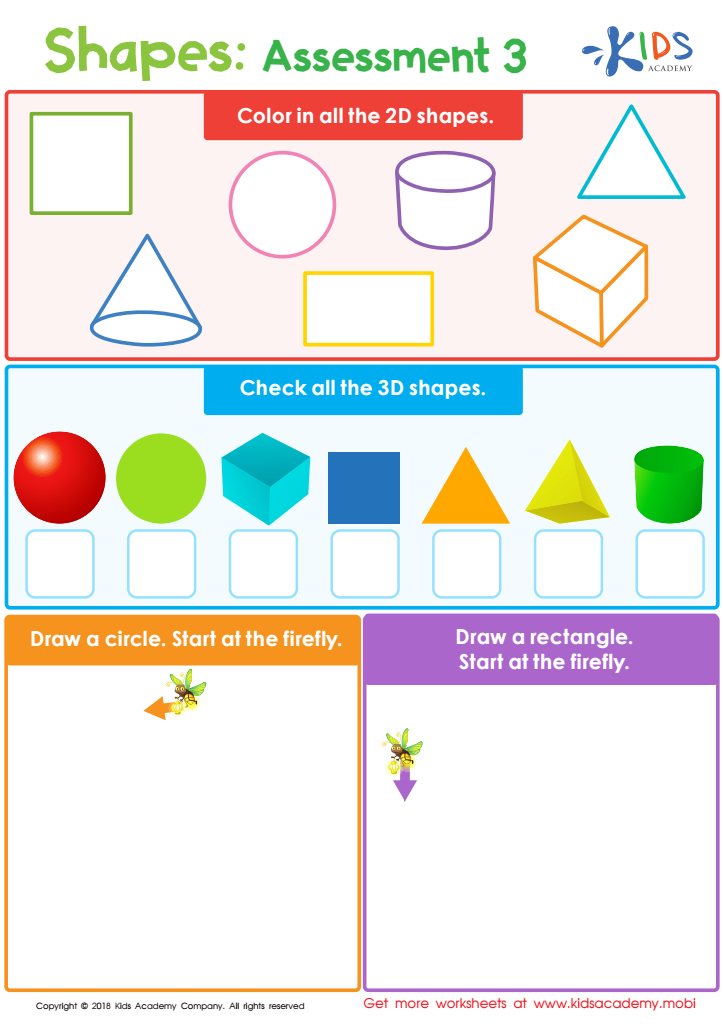

Shapes: Assessment 3 Worksheet
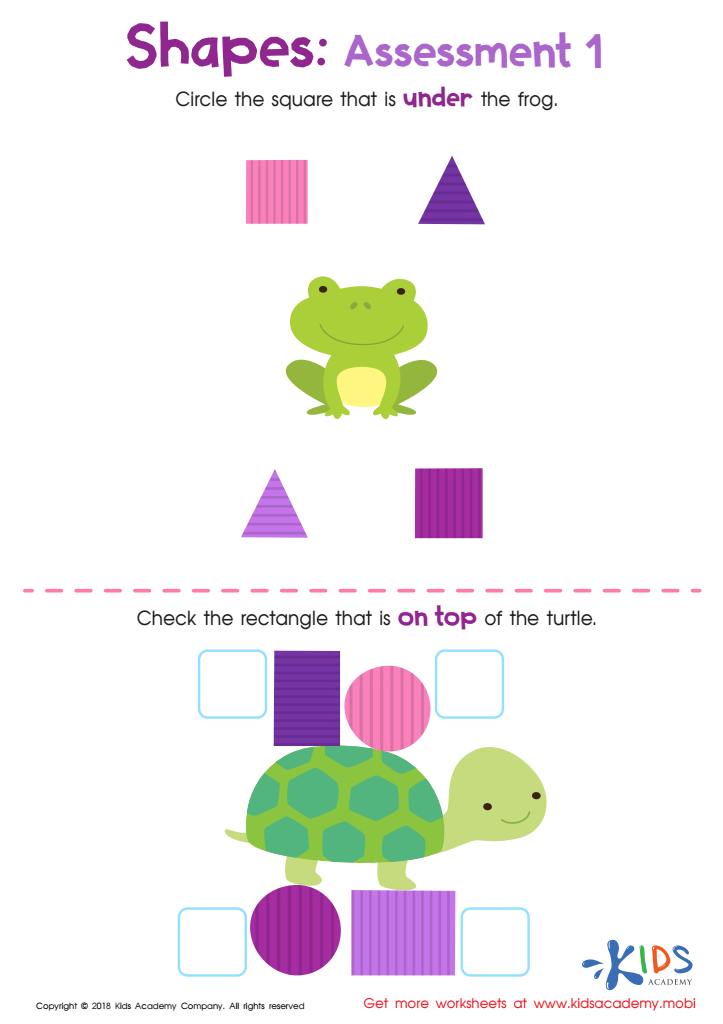

Geometry – Assessment 1 Worksheet
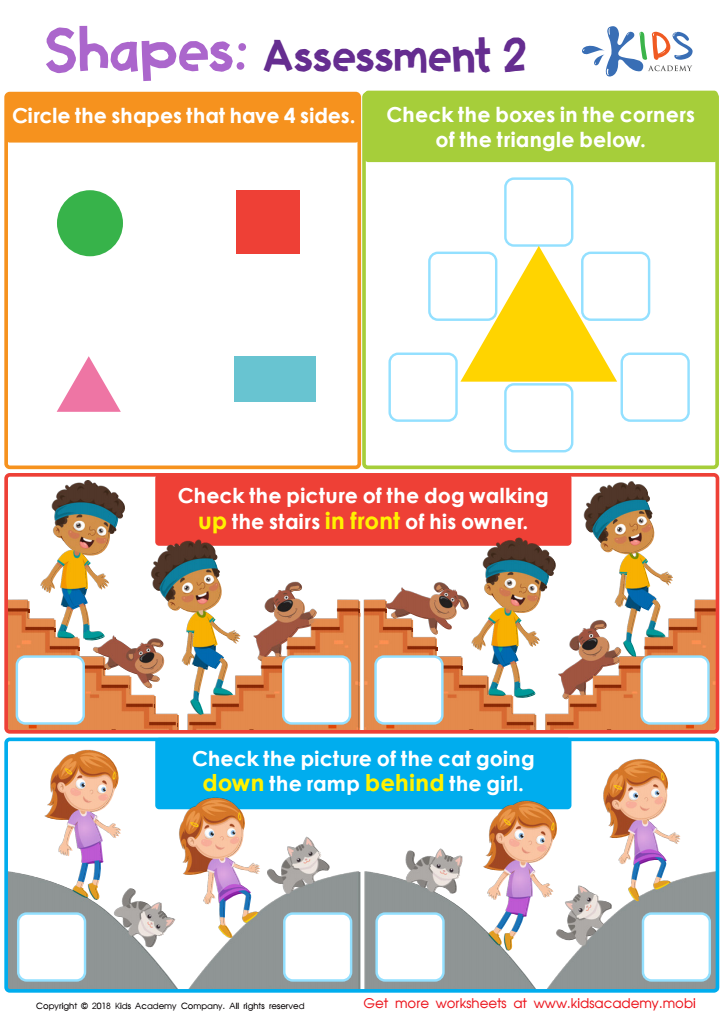

Shapes: Assessment 2 Worksheet
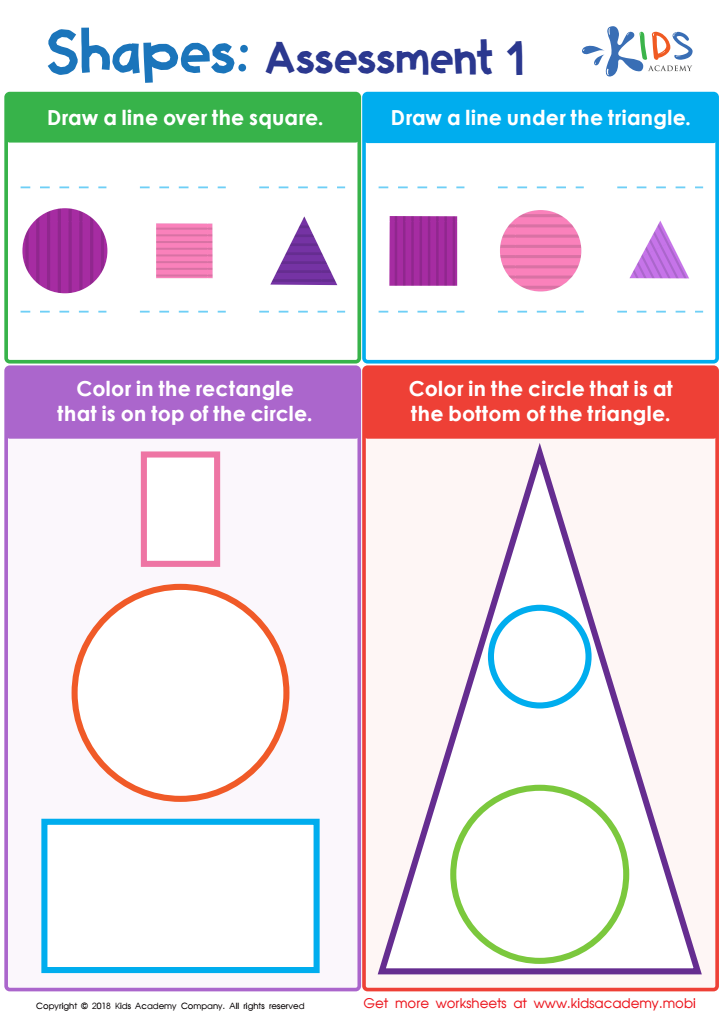

Shapes: Assessment 1 Worksheet
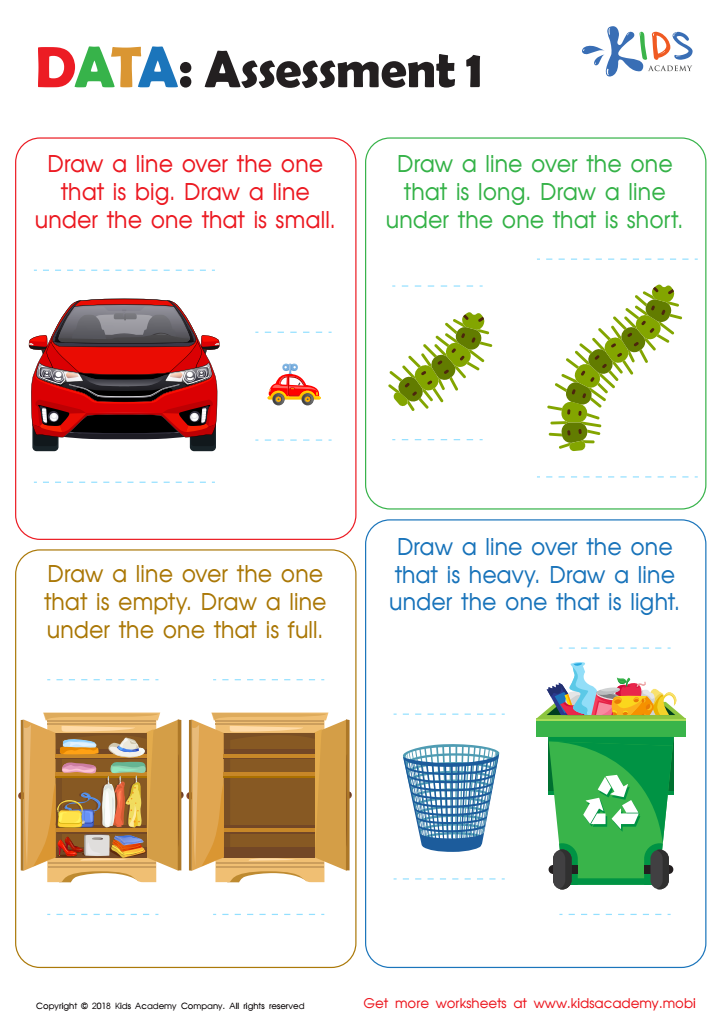

Data: Assessment 1 Worksheet
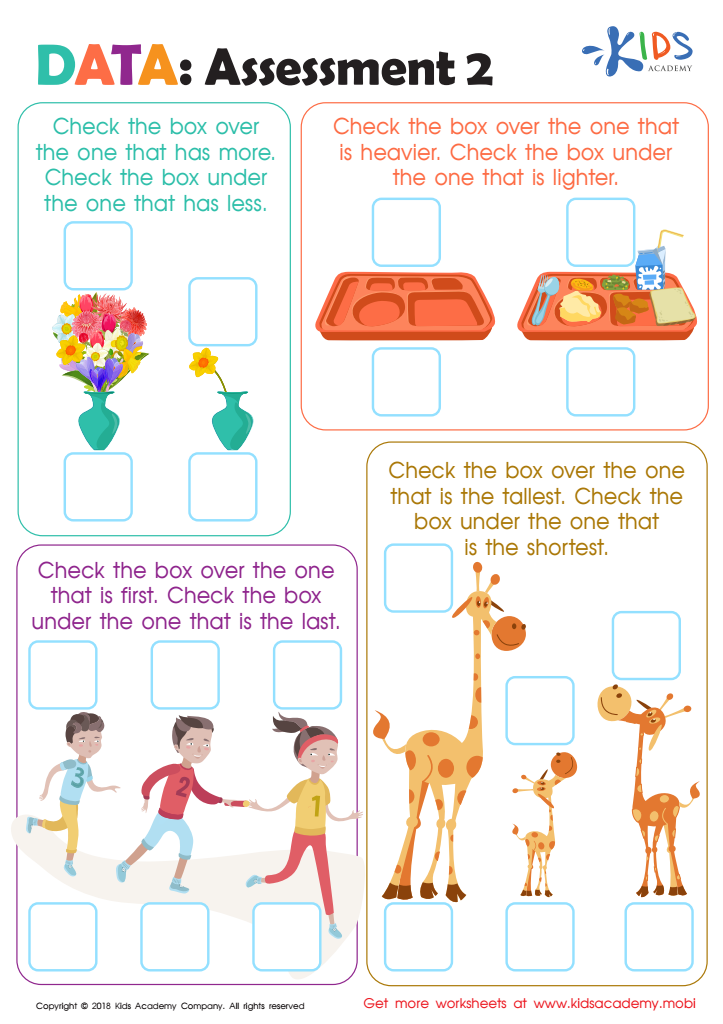

Data: Assessment 2 Worksheet
Parents and teachers should prioritize Geometry Activities with Answers for Ages 6-9 because these activities play a crucial role in early mathematical development. At this age, children establish foundational skills that will support their understanding of more complex concepts later on. Geometry not only involves shapes and spatial awareness but also enhances critical thinking and problem-solving abilities, which are essential for overall cognitive development.
Engaging in geometry activities maintains children's interest in math through fun, hands-on experiences. These activities promote active learning by allowing children to explore geometric principles through puzzles, drawings, and games, making the abstract concepts more tangible. Additionally, providing answers fosters confidence and allows for immediate feedback, helping children understand their mistakes and reinforcing their learning.
Moreover, integrating geometric concepts in everyday activities can enhance children’s environmental awareness, enabling them to recognize shapes around them and promoting a deeper connection with their surroundings. Parental and teacher involvement in these activities can also strengthen their relationships with children, creating a supportive learning atmosphere. Ultimately, Geometry Activities with Answers can lay the groundwork for a lifelong appreciation of mathematics and a strong skill set for future academic success.
 Assign to My Students
Assign to My Students








.jpg)

